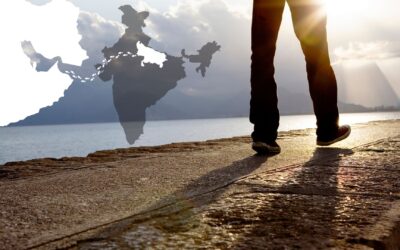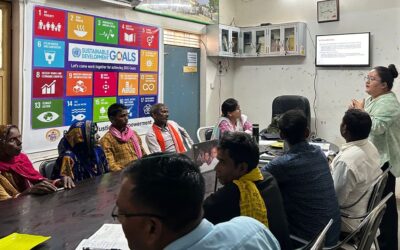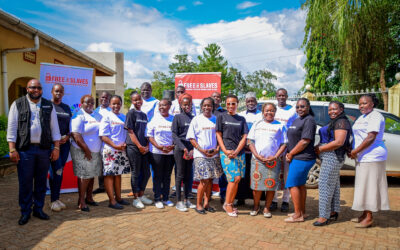Our Fashion for Freedom Campaign is designed to benefit women, men, and children working to rebuild their lives in the Democratic Republic of the Congo (DRC) and India. Recovering from slavery requires multidimensional healing – psychological, physical, social and economic. One way to help survivors recover is to provide opportunities for them to become economically independent in a sustainable way. Free the Slaves is committed to providing these economic opportunities to survivors through vocational training.
All of the money raised during the Fashion for Freedom campaign and at the Fair Trade Fashion Show this month will go to these training programs in the DRC and India.
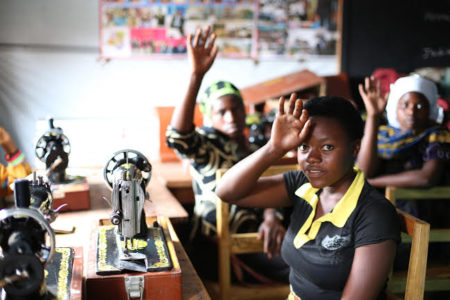
Congo sewing classroom | Photo: FTS/Timpy
Over the years, FTS has witnessed countless “success stories” come out of these vocational programs. For instance, Ombeni, from the Congo, learned how to sew after being liberated from sex slavery. Thanks to her hard work and FTS’ accessible vocational training programs, Ombeni has been able to start her own sewing boutique and provide for her two children.
These vocational programs have the ability to save lives. Unfortunately, they also cost a significant amount of money to run. Training kits cost about $100, and sewing machines cost about $200. Sewing programs, such as the one Ombeni took part in, can be an essential building block for survivor independence. A survivor’s economic stability can ensure that they avoid trafficking in the future, and allows for them to support themselves and their family.
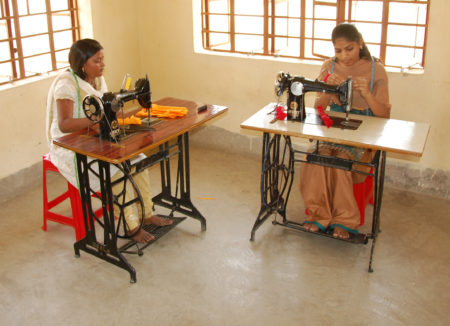
Sewing class in India | Photo: FTS/FitzPatrick
Our DRC program isn’t the only country program offering vocational training. In India, sex trafficking survivors are provided shelter at Punarnawa Ashram, where they receive psychological, legal, medical and educational assistance, as well as vocational training. Women learn sewing skills that can be translated into a steady income. Such skills can help alleviate poverty and improve living conditions. Learning to sew can help survivors take back control of their lives. FTS wants to ensure that Punarnawa Ashram, meaning “beginning of new life,” remains accessible to women looking to rebuild and recover.
Economic independence is something that many of us take for granted. Many women in the DRC and India benefit from the vocational training programs that FTS provides. By supporting our Fashion for Freedom Campaign and attending our Fair Trade Fashion Show in Los Angeles July 29, you are supporting these programs.
You can help FTS provide incredibly resilient women with economic opportunity by donating here. Tickets are still available for the fashion show here.
Both the India and DRC vocational training programs will benefit.


